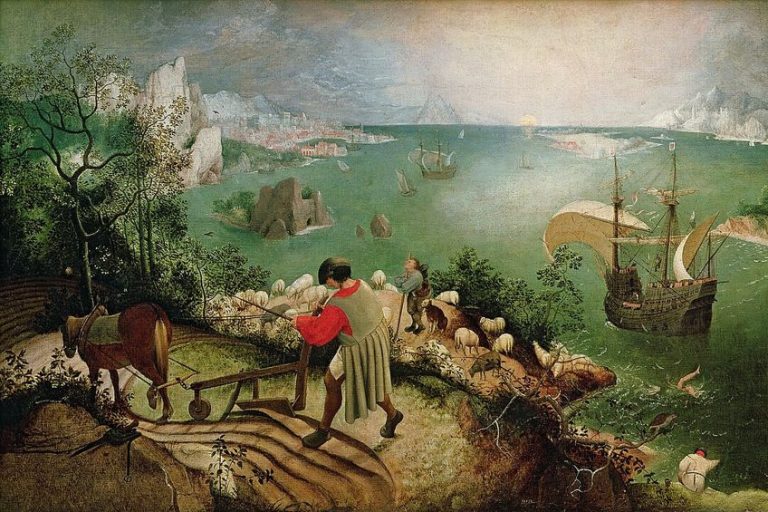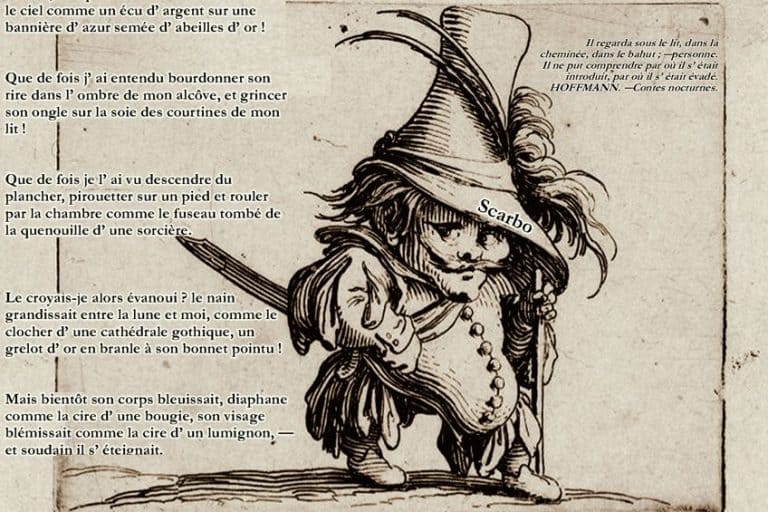Poems About Depression – Discover 15 Famous Examples
Poems can be about any number of different topics, and there have also been many creative people over the millennia who also happen to struggle with their emotions. This is something very human to experience, but the difference when it comes to poets is that they will then likely turn those emotions into poems. Today, we are going to be examining how some of those poets produced poems about depression because of this very reason. Poets can write about whatever they want, but for now, we’ll only be looking at those who are more on the unhappy side of things. You may already appreciate depression poems, but if you generally do not, then this may be good for you because the negative emotions are just as human as the positive ones. So, let’s see how those negative emotions are conveyed in the 15 poems below!
Table of Contents
- 1 A Few Poems About Depression
- 1.1 Sonnet 29 (1609) by William Shakespeare
- 1.2 Holy Sonnet III (1633) by John Donne
- 1.3 Ode on Melancholy (1820) by John Keats
- 1.4 So We’ll Go No More a Roving (1830) by Lord Byron
- 1.5 The Rainy Day (1842) by Henry Wadsworth Longfellow
- 1.6 Shut Out (1862) by Christina Rossetti
- 1.7 Alone (1875) by Edgar Allan Poe
- 1.8 It was not Death, for I stood up (1891) by Emily Dickinson
- 1.9 A Question (1942) by Robert Frost
- 1.10 Not Waving but Drowning (1957) by Stevie Smith
- 1.11 Mirror (1963) by Sylvia Plath
- 1.12 We Ain’t Got No Money, Honey, But We Got Rain (1990) by Charles Bukowski
- 1.13 Explaining Depression to a Refugee (2018) by Muna Abdulahi
- 1.14 Depression is a shadow (2018) by Rupi Kaur
- 1.15 Depression (2022) by Alison Pick
- 2 Frequently Asked Questions
A Few Poems About Depression
When it comes to poems that tackle concepts like depression, we are going to encounter some rather miserable texts. This is something unavoidable. Not all poems about depression necessarily need to be depressing as a poem about overcoming depression is just as much about depression as one that examines the direct feelings associated with depression, but those below are going to generally be those that are on the more miserable side of things. There is a lot that we can learn from poems of this nature, just like we can learn a lot from every other form of poetry. Poems can show us the inner thinking of a person, and that is a fascinating and exhilarating thing at times. The poems below will not be those that are particularly happy, but they will be poems that are honest in what they want to discuss. Let’s give them a bit of a chance and see what all they want to show us.

Sonnet 29 (1609) by William Shakespeare
| Date Published | 1609 |
| Type of Poem | Shakespearean sonnet |
| Rhyme Scheme | ABABCDCDEFEFGG |
| Meter | Iambic pentameter |
| Topic | Self-doubt and despair |
Sonnet 29 is not one of the most famous of all the sonnets that Shakespeare produced in his life, but it does express certain thoughts and feelings that are associated with more depressive states of mind. This poem examines the speaker’s feelings of social isolation, sadness, and disgrace. He sees himself as an outcast who has been ostracized, and while Shakespeare and his contemporaries had no idea what depression was as a mental health condition, they were certainly understanding of the ideas of feelings that we have come to associate with depression. This poem, while not about the mental disorder, may still prove beneficial to those who do feel those thoughts.
It shows us, in its shift near the end, that love can help us to crawl out of this pit of sadness that we might feel when we have become isolated from others.

Holy Sonnet III (1633) by John Donne
| Date Published | 1633 |
| Type of Poem | Sonnet |
| Rhyme Scheme | ABBAABBACDCDEE |
| Meter | Iambic pentameter |
| Topic | Sorrow and religion |
Holy Sonnet III is a poem about grief. While depression can be an overwhelming feeling that does not even necessarily require there to be any direct reason for its existence, we can certainly understand why feelings of grief can serve as a trigger for a depressive state of mind. In this particular case, as is the case with many John Donne poems, the text is concerned with religious feelings, and how the inner struggle with regard to an understanding of sin and redemption, can lead us to these kinds of thoughts.
This is not a universally relatable poem as we do not all experience spiritual aspects the same way, and many do not experience them at all, but the feelings that can arise from such thought should be understandable to many.

Ode on Melancholy (1820) by John Keats
| Date Published | 1820 |
| Type of Poem | Ode |
| Rhyme Scheme | ABABCDECDE |
| Meter | Iambic pentameter |
| Topic | Sadness |
Ode on Melancholy is a poem by one of the greatest Romantic poets. In this particular case, the text is one that explores melancholy. The title has basically already told us this, and a good little hint from me to you is that when a poem has the name of an emotion in the title. It may very well be about that particular feeling! Anyway, this poem, as an ode, is actually something of an attempt to accept this kind of sadness rather than merely hiding from it. The sadness that we might feel is certainly a terrible and dark thing, but there can be a means of overcoming it for a whole number of different reasons. Melancholy, and other negative emotions, are part of what it means to be human, and having introspective thoughts about the reasons for our sadness can help us to come to terms with such thoughts. In addition, we do not experience these kinds of negative thoughts for no reason whatsoever. There is, in fact, always a reason for such things, even when we have deep medical depression.
It comes from somewhere, and while we may not always be able to identify where it comes from, we certainly can try to understand ourselves to better identify the reasons why we may feel the way that we do.
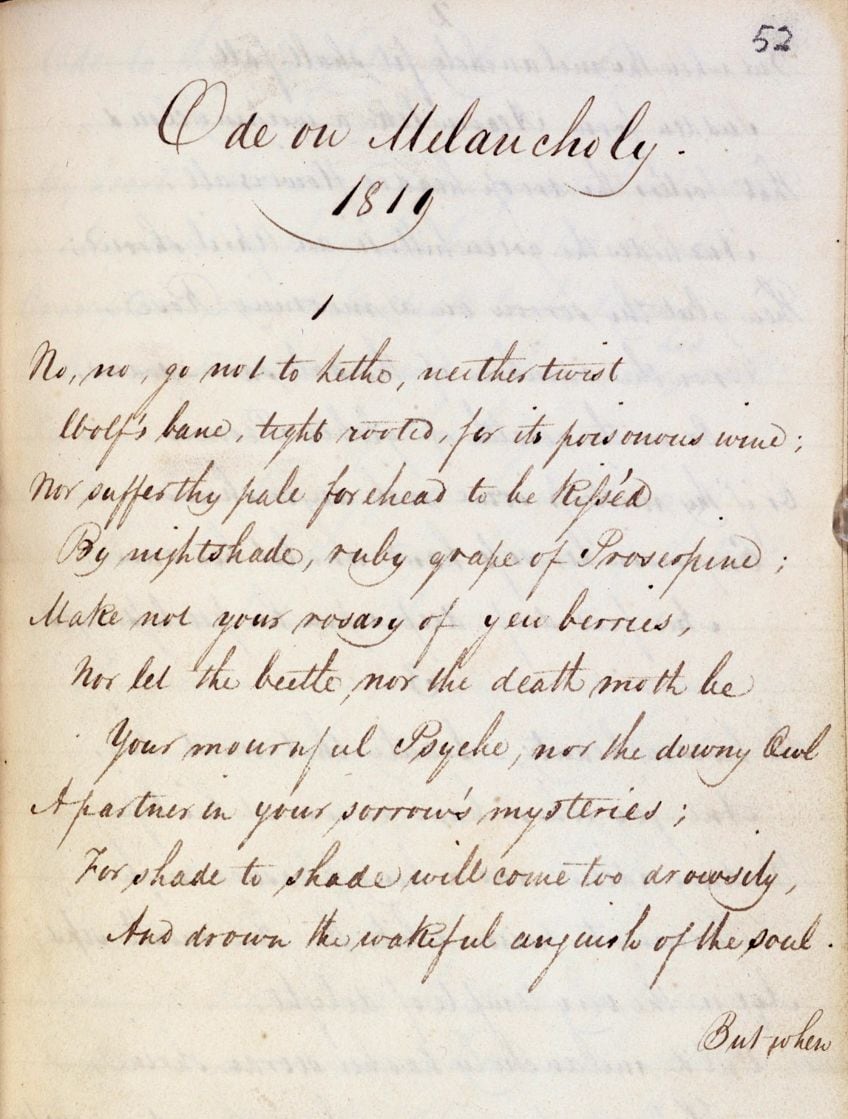
So We’ll Go No More a Roving (1830) by Lord Byron
| Date Published | 1830 |
| Type of Poem | Lyric poem |
| Rhyme Scheme | ABAB |
| Meter | Variable |
| Topic | Aging and sadness |
So We’ll Go No More a Roving can be interpreted as a poem about a number of different things, but it can be useful to see it as a poem about depression. The reason for this is because it describes the kind of feeling that many of us may feel when struggling with depression. The poem is about a sudden stopping of activity. It shows the feelings associated with simply ending their time doing things that they may otherwise enjoy. It shows how some of us who experience depression can suddenly feel that the things we once loved are no longer enjoyable. It becomes tiring to do these things as we get older, and our minds become darker.
It is not a particularly happy poem, but it is one that many with depression may find relates to them on a far deeper level than many of the other poems out there in the world.
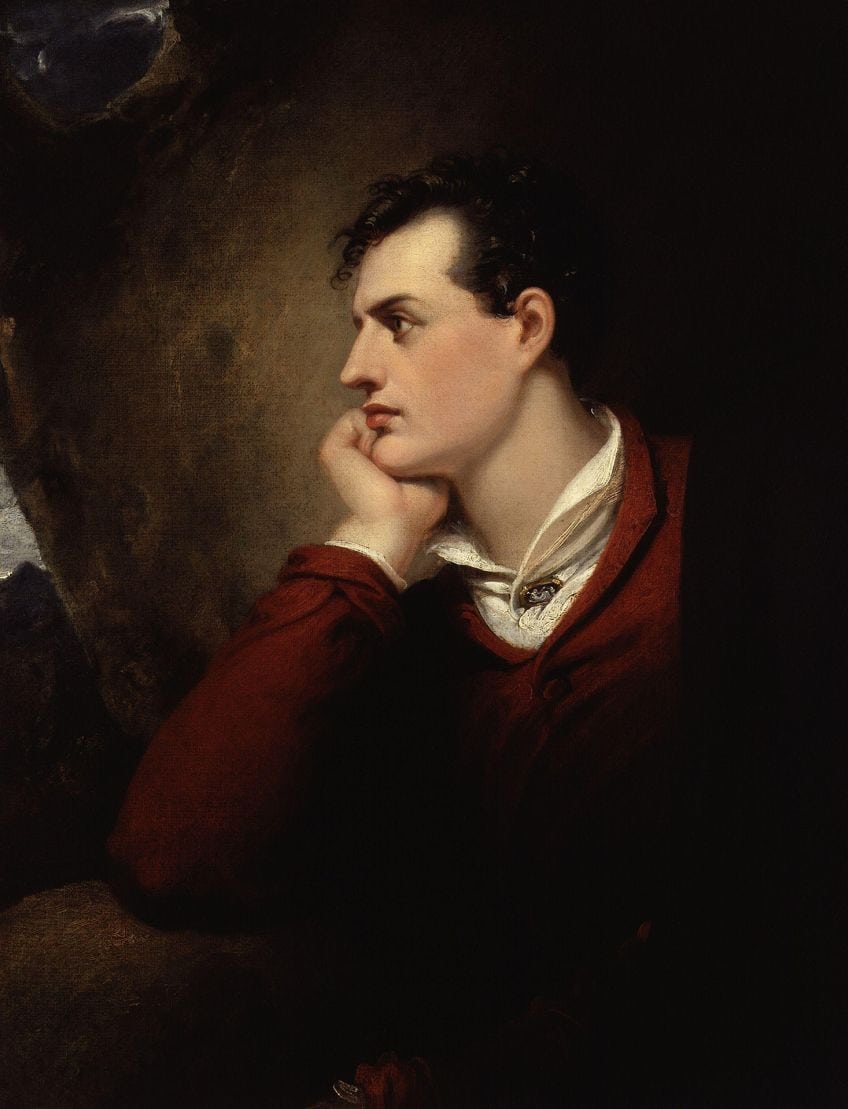
The Rainy Day (1842) by Henry Wadsworth Longfellow
| Date Published | 1842 |
| Type of Poem | Lyric poem |
| Rhyme Scheme | AABBA |
| Meter | Iambic pentameter |
| Topic | Emotion and depression |
The Rainy Day is a poem that fixates on the rain. It describes everything as dreary and cold. There is darkness and unhappiness around. The rain comes to be a metaphor for the feelings that can be seen out the window when the weather is frightful. When we come to see the weather itself as having an emotionality to it, we come to personify what cannot experience emotion. There is nothing depressing about a sunless day in which the sky is full of clouds, but we see the lack of sun as a negative. We see it as sadness incarnate. This is a very fascinating thing that humans tend to do because we like to ascribe human attributes onto non-human things, but it makes sense.
When something makes us feel a certain way, we may just come to ascribe some thought onto it even if that thing does not deserve to be treated in such a way.
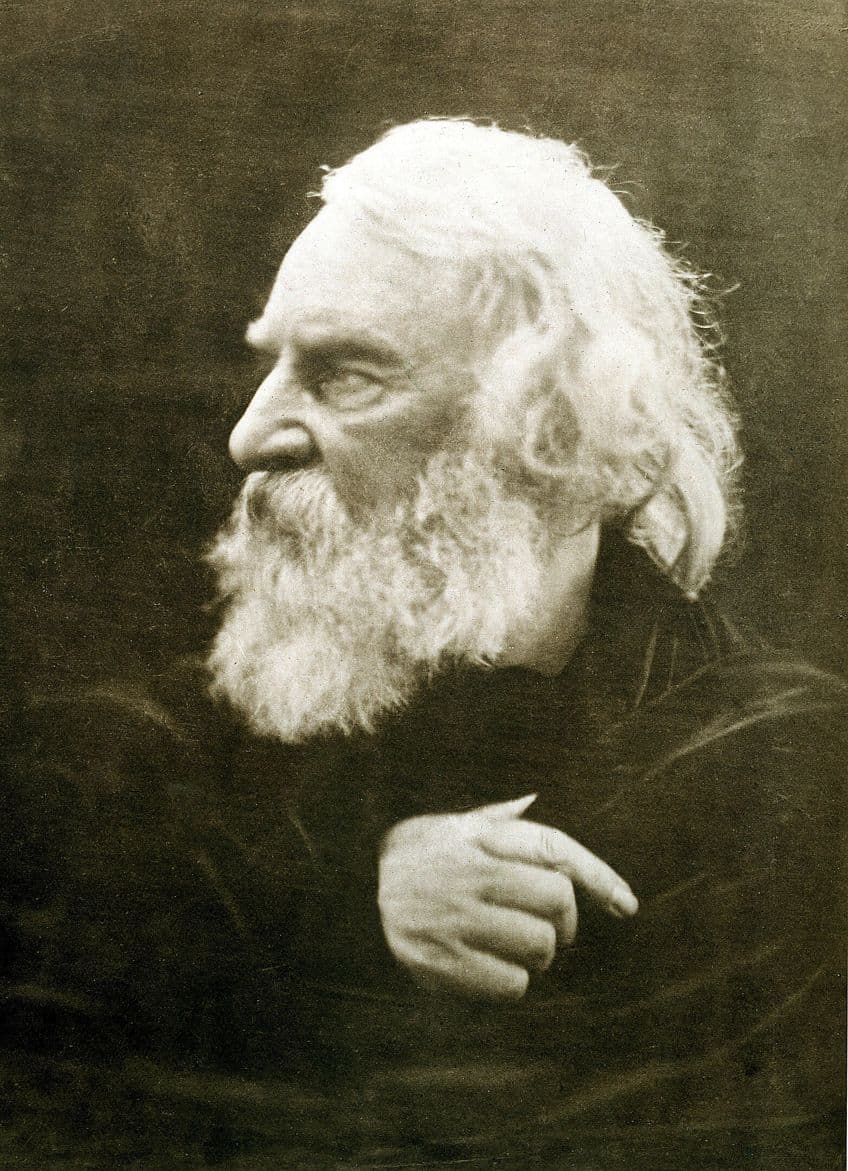
Shut Out (1862) by Christina Rossetti
| Date Published | 1862 |
| Type of Poem | Lyric poem |
| Rhyme Scheme | ABBA |
| Meter | Iambic tetrameter |
| Topic | Loss and isolation |
Shut Out is a poem that depicts a beautiful garden that has been barred by the one who once frequented that same garden. It shows their sadness in losing what they had once been able to enter. This can be interpreted as a metaphor for what we can lose along the way in our lives.
There are many ways that it can be interpreted, but when we think of it in relation to depression, it rings very true with regard to the kind of emotions felt when losing something that once brought us joy.

Alone (1875) by Edgar Allan Poe
| Date Published | 1875 |
| Type of Poem | Lyric poem |
| Rhyme Scheme | AABB |
| Meter | Iambic tetrameter |
| Topic | Solitude |
Alone is a poem about solitude. This text examines feelings of utter isolation that have continued since childhood, and while isolation cannot solely be seen as the domain of depression, it certainly is the kind of thing that we can associate with the sorts of feelings that can be paired with depression. When it comes to genuine depression, even when we are not alone, we can feel as if we are completely and utterly on our own. No one can understand us or relate in any way, or at least this is the way that we might feel about ourselves.
The work of Edgar Allan Poe has often been a comfort to many who struggle with darker feelings, and this poem is no exception.

It was not Death, for I stood up (1891) by Emily Dickinson
| Date Published | 1891 |
| Type of Poem | Lyric poem |
| Rhyme Scheme | None |
| Meter | Alternating iambic trimeter and tetrameter |
| Topic | Depression |
It was not Death, for I stood up is a poem about mental states. It is about understanding ourselves and why we feel the way that we do when depressive thoughts and feelings weigh down on us. These kinds of thoughts can lead to feelings of hopelessness, and that can lead us to experience immense despair at the state of the world. This poem explores how it can be difficult to even explore these kinds of feelings when they come upon us.
This is why, even though “depression” as a disorder was not understood during Dickinson’s time, the feelings associated with depression can be seen as universal.

A Question (1942) by Robert Frost
| Date Published | 1942 |
| Type of Poem | Lyric poem |
| Rhyme Scheme | ABAB |
| Meter | Iambic tetrameter |
| Topic | Suffering |
A Question is a poem that explores a feeling of deep suffering, and it has introspective thoughts related to an inner struggle that we might experience. This is common in those who experience depression.
Depression may be caused by external factors much of the time, but the actual expression of depression is only felt within ourselves and others cannot feel what we feel.

Not Waving but Drowning (1957) by Stevie Smith
| Date Published | 1957 |
| Type of Poem | Lyric poem |
| Rhyme Scheme | None |
| Meter | None |
| Topic | Isolation and pain |
Not Waving but Drowning is a poem about drowning, or at least it uses the metaphor of drowning. When it comes to poems about depression, there is often the use of metaphor to help us understand the thoughts and feelings that can be termed depressive. The poem switches from third to first-person and shows how we can perceive depressive thoughts within ourselves and how others see them from the outside.
The view from the outside is skewered and wrong, but we cannot necessarily understand, or even realize, that those around us have depression, and we might mistake what we perceive as a friendly wave when it was actually a cry for help because they were drowning.
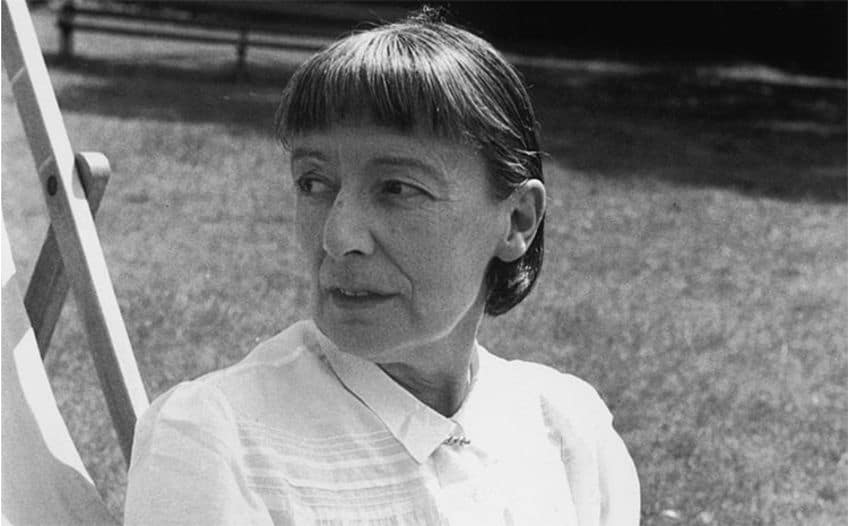
Mirror (1963) by Sylvia Plath
| Date Published | 1963 |
| Type of Poem | Free verse poem |
| Rhyme Scheme | None |
| Meter | None |
| Topic | Aging and death |
Mirror is not necessarily a poem that is directly about depression, but it can be interpreted as having similar feelings associated with it. The poem is from the perspective of a mirror, and through that mirror, we see, as humans, our imperfections reflected back at us. The poem reflects reality, and those who look into its silvery face will see our every piece of self-loathing redirected back at us. Through something that is objective, we can see that we age and approach death, and this leads to dark introspection.
This is something that many who suffer from depression would find relatable, but then again, many of the poems of Sylvia Plath are relatable to those with similar feelings.
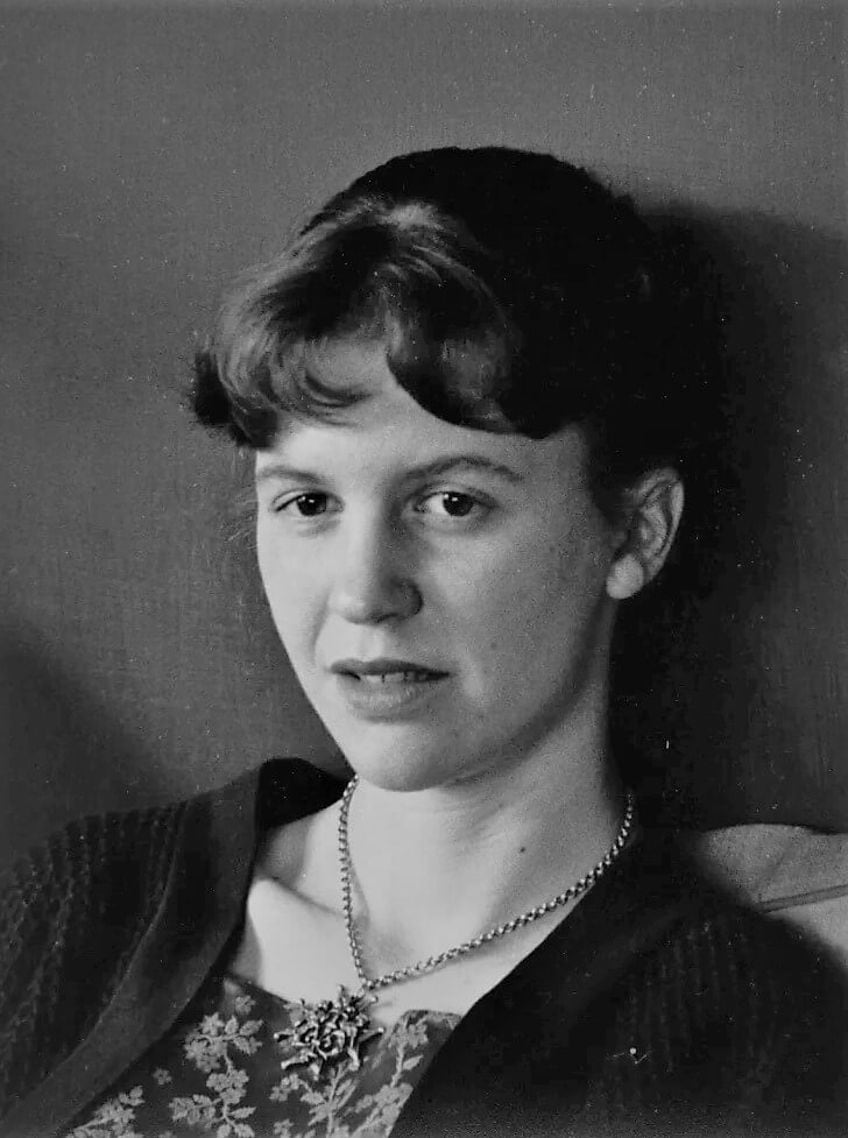
We Ain’t Got No Money, Honey, But We Got Rain (1990) by Charles Bukowski
| Date Published | 1990 |
| Type of Poem | Free verse poem |
| Rhyme Scheme | None |
| Meter | None |
| Topic | Conflict and struggle |
We Ain’t Got No Money, Honey, But We Got Rain is a poem that directly explores the Great Depression of the first half of the 20th century, but through this discussion, it does also explore feelings associated with depression as an emotion. It uses the image of the rain to examine social and personal issues that lead to despair. However, the poem is ultimately more hopeful in its depiction of human endurance and survival.
They were able to pull themselves from the hole that was the Great Depression, and the mental crisis that came with it, and so they are strong creatures.

Explaining Depression to a Refugee (2018) by Muna Abdulahi
| Date Published | 2018 |
| Type of Poem | Free verse poem |
| Rhyme Scheme | None |
| Meter | None |
| Topic | Mental health and refugees |
Explaining Depression to a Refugee is a poignant poem that denies many of the usual interpretations of depression poems as being those that come from a predominantly white perspective. Instead, this poem wants to understand depression and how it can be explained in more tangible terms. It is easy to become lost in ourselves when suffering from depressive thoughts and feelings, and there certainly are many other struggles in the world that come with their own difficulties.
This poem reminds us of what lies outside of depression when we may feel this way.
Depression is a shadow (2018) by Rupi Kaur
| Date Published | 2018 |
| Type of Poem | Free verse poem |
| Rhyme Scheme | None |
| Meter | None |
| Topic | Depression |
Depression is a shadow is a short and simple poem about depression from one of the most famous contemporary poets. The poem does not actually have a title, but it does end with the thought expressed in what has been labeled as the title. The poem expresses deep feelings of isolation and a lack of care for life itself. It finally ends by stating that the depression inside is a shadow that lives within us. This kind of sentiment, which is stated succinctly and simply, is one that will likely resonate with many who do experience depression.
It can feel like we’re all alone and that this monster inside can rear its head whenever we are vulnerable. It’s always lurking in the shadows.
Depression (2022) by Alison Pick
| Date Published | 2022 |
| Type of Poem | Free verse poem |
| Rhyme Scheme | None |
| Meter | None |
| Topic | Depression |
Depression is the final poem about depression in this list of depression poems, and it opens with a heartbreaking statement that “I come by it honestly”, meaning that the speaker inherited depression from their family. The poem explores the idea of gaining depression through hereditary means and that it passes from one to the next in their family line. It examines the feelings that come with depression and even refers to it as a cancer that has invaded the brain and spread. These are the kinds of thoughts that those with depression might experience as they struggle to come to terms with the feeling that refuses to leave their mind.
We have just finished with our look at 15 different poems about depression. Poems of this nature can be just as varied as any other major theme that is explored in poetry. Hopefully, that is one of the things that this article has demonstrated. Poetry isn’t all about love, despite what some people appear to think about the medium, but it also certainly isn’t all about sadness, and if this article has been a bit of a downer, that does make sense. However, even if it is a downer, there are still many things that you can do if you feel that way. There are many poems about very happy or more neutral topics, such as poems about joy or spring. There is so much out there to explore, and all you need to do is give it a quick Google search!
Frequently Asked Questions
What Are Poems About Depression?
When it comes to poems about depression, we cannot say that there is one particular type of poem which is the depression poem variety. Instead, a poem about depression is just one that is, in some way, related to depression. However, when we use the word depression, we are often using it in a very generalized way. We do not necessarily refer to the mental health condition, but rather to the feeling that we have come to associate with depression, namely deep sadness. That said, we can still make use of the clinical condition when writing a poem about depression, but it is likely not what many think of when they think of the term.
Are There Any Specific Characteristics in Depression Poems?
As poems about depression are not actually a type of poem but rather a theme that can be explored within poetry, there are no characteristics that are associated with these kinds of poems. However, many poems about depression tend to lean more towards the sad side of poetry. So, a poem about depression may make use of darker imagery and ideas, but this is not universal. We do not all experience emotions the same way, and one could write about any emotion in any number of ways. So, there are likely poems about depression that have examined the concept in all manner of means!
Which Poets Are Known for Writing Depression Poems?
There are many poets out there who have written about depression. However, some notable ones are writers such as Henry Wadsworth Longfellow, Edgar Allan Poe, and Emily Dickinson. When it comes to poets who suffered from the clinical disorder that bears this name and wrote many poems that explore ideas surrounding psychiatric depression, we cannot ignore the work of Sylvia Plath. Her poetry is considered to be some of the greatest of the 20th century, and much of her work explored these exact kinds of ideas. Many of them are raw, emotional, and deeply unhappy, but they have made her work some of the most well-known in this particular area of poetic expression.
What Are Some of the Best-Known Depression Poems?
When it comes to poems about depression, you’ll have a hard time compressing it all into a small list. This entire article has been my own attempt to do that, but to further narrow it down, we could state that some of the poems about depression that exemplify this theme include Ode on Melancholy (1820) by John Keats, Shut Out (1862) by Christina Rossetti, and It was not Death, for I stood up (1891) by Emily Dickinson. However, just as the article above with its list of 15 poems is woefully inadequate at conveying the sheer magnitude of depression poems out there, so is this even shorter answer.
Are All Depression Poems Sad?
Just because a poem is about depression does not necessarily mean that it is also sad. You would be correct for automatically assuming that many depression poems are also rather sad, but this is not always the case. For instance, a poem might be about overcoming depression, seeing the joy through depression, or understanding depressive feelings within the context of life events. There are so many reasons that someone might experience depression in their lives, and there are a myriad of other reasons why a poet might wish to express their feelings about depression. So, distilling it all down to only seeing depression poems as sad poems may not be the best idea.
Justin van Huyssteen is a freelance writer, novelist, and academic originally from Cape Town, South Africa. At present, he has a bachelor’s degree in English and literary theory and an honor’s degree in literary theory. He is currently working towards his master’s degree in literary theory with a focus on animal studies, critical theory, and semiotics within literature. As a novelist and freelancer, he often writes under the pen name L.C. Lupus.
Justin’s preferred literary movements include modern and postmodern literature with literary fiction and genre fiction like sci-fi, post-apocalyptic, and horror being of particular interest. His academia extends to his interest in prose and narratology. He enjoys analyzing a variety of mediums through a literary lens, such as graphic novels, film, and video games.
Justin is working for artincontext.org as an author and content writer since 2022. He is responsible for all blog posts about architecture, literature and poetry.
Learn more about Justin van Huyssteen and the Art in Context Team.
Cite this Article
Justin, van Huyssteen, “Poems About Depression – Discover 15 Famous Examples.” Art in Context. February 12, 2024. URL: https://artincontext.org/poems-about-depression/
van Huyssteen, J. (2024, 12 February). Poems About Depression – Discover 15 Famous Examples. Art in Context. https://artincontext.org/poems-about-depression/
van Huyssteen, Justin. “Poems About Depression – Discover 15 Famous Examples.” Art in Context, February 12, 2024. https://artincontext.org/poems-about-depression/.





